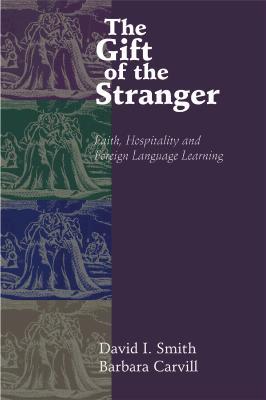Have you ever thought of foreign language learning as a form of hospitality? I know I hadn’t until a friend I visited in Portland last week gave me The Gift of the Stranger: Faith, Hospitality and Foreign Language Learning by David I Smith and Barbara Carvill. I have added this must read to my Hospitality reading list.
Have you ever thought about foreign language learning as an opportunity to be a blessing to a stranger or to be hospitable to strangers? Have you ever wondered how, through our attitudes to teaching or learning another language, we become hosts or guests to others.
The book is rooted in the argument that the biblical call is to love the stranger. It starts with a study of biblical themes relevant to the discipline of language teaching: imago dei, Babel, Pentecost, the stranger and hospitality. The authors explain that cultural diversity is blessed by God and marred by evil. Here is a short excerpt to whet your appetite:
Jesus, Christ came to redeem all nations, not to abolish their diversity. Accordingly, God promises a day when peoples from all tribes and nations and languages will come together to worship and enjoy a life of shalom, of peace and justice ….. foreign language education, too, is called to play a role in this cosmic story. But it will only do so if it is grounded in and grows out of a biblical vision of reconciliation, for justice and peace among nations. It must be shaped by respect for the other as an image bearer of God; it must be eager to hear the other; and it must be driven by love for God and for one’s neighbour. In the light of these biblical themes, we propose that foreign language education prepare students for two related callings: to be a blessing as strangers in a foreign land, and to be hospitable to strangers in their own homeland.
Students who become strangers in a foreign land are called to be a blessing to the locals by speaking in the locals’ tongue, by listening to their stories and sharing their own, by asking good questions, by comparing and contrasting, by learning from them – in short, by using the special friend and responsibility an educated stranger has in the host country for being a loving presence. Similarly, students also are called to become good hosts to the foreigner or alien in their own land, to receive the stranger graciously, and to practice the kind of hospitality that is a blessing to both the guest and the host. Both callings, we propose, make up the very heart of foreign language learning.
I think that this thoughtful and provocative book is a must read not just for anyone who teaches or is learning another language, but for anyone who works cross culturally. And in our richly multicultural world who of us don’t these days.
NOTE: AS AN AMAZON ASSOCIATE I EARN A SMALL AMOUNT FOR PURCHASES MADE THROUGH LINKS. THANK YOU FOR SUPPORTING GODSPACE IN THIS WAY.

